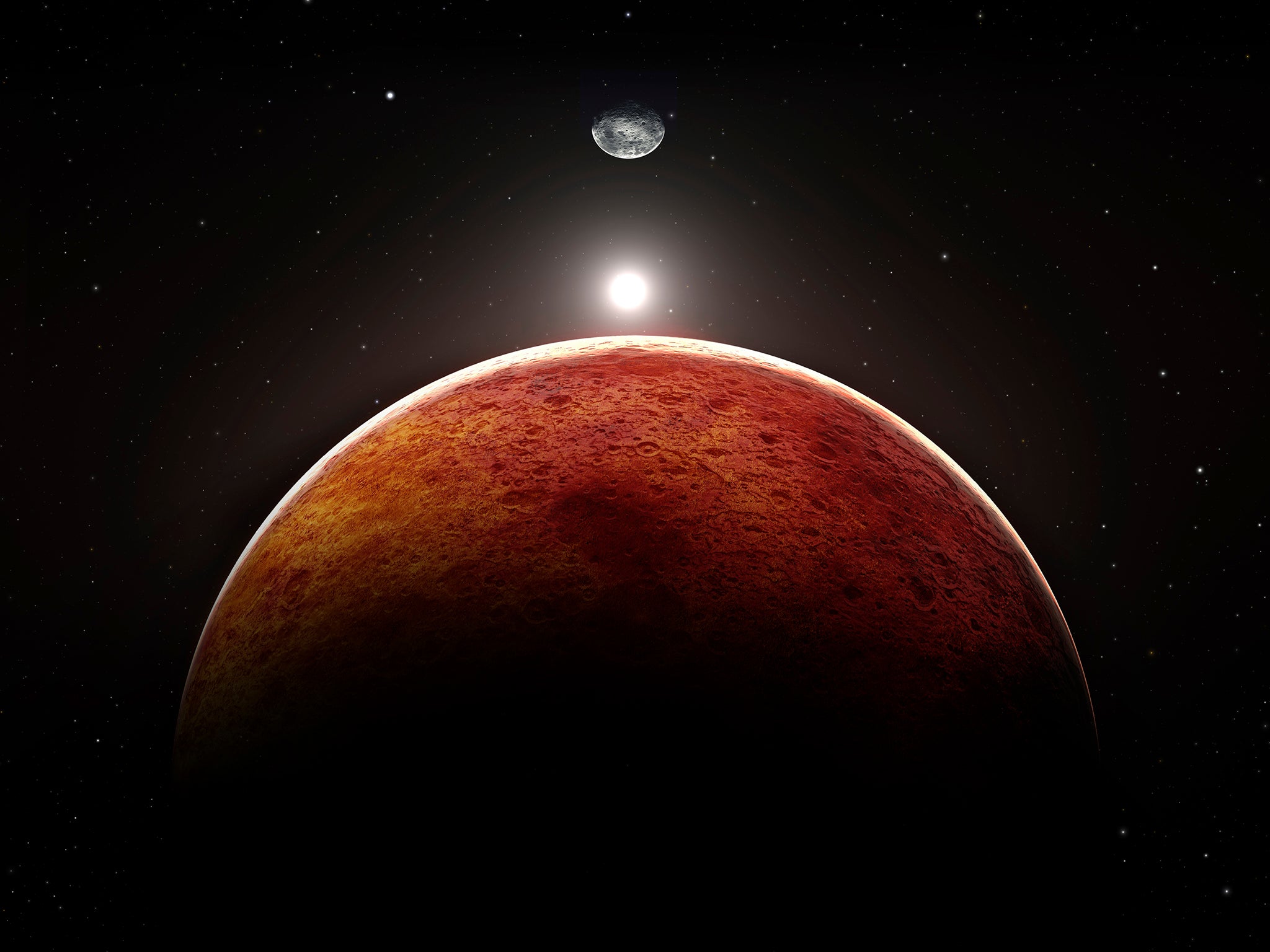Mars makes closest approach to Earth in 11 years: When and where to see the Red Planet
The planet will reach it's closest point on Monday, and should be visible in the sky for most of the night

Mars will be closer to Earth than it has been since 2005 on Monday night, and will continue to appear brighter than usual until 3 June.
Keen stargazers may have noticed that the Red Planet has been appearing brighter in the sky since 18 May.
The shape of Earth and Mars's orbits is elliptical rather than circular, and tilted in relation to one another, which means the distance between them can vary a great deal.
Every 26 months, the two planets will ‘approach’ one another, as they line up with each other on their individual ellipses. This is called a ‘Mars Close Approach’ or ‘inferior conjunction’.
However, because the ellipses are tilted, the distance between the two planets as they approach one another will still vary.
The closest the two planets have ever been is 54.6 million kilometres apart, and this is an extremely rare occurrence.
In 2003, Mars was less than 56 million kilometres away – the closest it has been for 60,000 years. NASA predicts that this will reoccur in 2287.
Tonight, Mars will be 75.3 million kilometres away from the Earth, the closest it has been for 11 years.
This is close enough that the planet should be visible to the naked eye, appearing brighter and larger than usual.
Mars will reach its closest – and therefore most visible - point on Monday, and should be visible in the sky for most of the night, reaching its highest point at around midnight about 35 degrees above the southern horizon.
After this, it will begin to fade again and until its next approach in 2018, when Mars will be just 57 million kilometres away.
Join our commenting forum
Join thought-provoking conversations, follow other Independent readers and see their replies
Comments
Bookmark popover
Removed from bookmarks